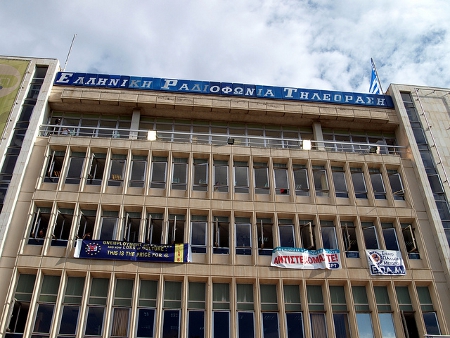‘If we are going to sin’ wrote Eric
Griffiths-Jones, Attorney General of the British administration in Kenya during
the Mau Mau rebellion, ‘we must sin quietly’. In truth, however, there was little
understated about a counter-insurgency that saw 20 000 rebels killed, 78 000
detained and over a million forcibly resettled. Yet, while the British may have
displayed little subtlety when fighting the rebellion, they proved extremely
adept at covering their tracks once hostilities ceased. Indeed, the full extent
of the abuses perpetrated by the British against the Mau Mau- abuses which
included torture and widespread mistreatment- began to emerge only in 2011,
after the Foreign Office ‘rediscovered’ 1 500 previously classified files.
In Empire
of Secrets, the debut book by Cambridge historian Calder Walton, the story
of Britain’s intelligence services during the era of decolonisation is told for
the first time. In Kenya, as with elsewhere, the picture was mixed. Rogue
elements within the security forces, able to take the law into their own hands,
engaged in quite terrible abuses. Conversely, the influential and measured
reports of MI5 downplayed fears that anti-colonial leaders, such as Kwame
Nkrumah and Joseph Kenyatta, were stooges of the USSR, facilitating transfers
of power in the process.
Somewhat more surprisingly, most newly
independent governments asked MI5 to carry on in their former capacity. The
rationale behind this remarkable alliance was threefold: their knowledge would come
in handy when forging indigenous security services, it made sense to keep lines
of communication open to the major powers and intelligence information could be
used to stymie or target internal political opponents.
Such arrangements also had advantages
for London. Most importantly, they facilitated the UKUSA agreement covering
signals intelligence (SIGNIT). Under this plan, GCHQ would be responsible for monitoring
the many former outposts of Empire on behalf of London and Washington. In the
pre-satellite era, during the high point of the Cold War, this understanding
bolstered Anglo-American relations just at the point that Britain’s hard power
was on the wane.
One of the more exceptional nuggets
unearthed by Walton concerns the British wartime
programme of ‘extraordinary
rendition’. Hereby persons of interest were detained, taken to a British colony
and transported to the mainland for interrogation at Camp 020. Although
physical torture was prohibited (not on humanitarian grounds, it should be
noted, but because it promised only ‘unreliable evidence’), the scheme was
extremely secret and of questionable legality.
Throughout this passage, Guantanamo Bay
lurks in the background and, at one point, it is referenced outright. This
theme: linking practices of the past to contemporary events reoccurs at various
intervals but is almost always unconvincing. This is not because the
comparisons are completely erroneous but because they add little in the way of
insight. For, in truth, despite the obvious similarities, there is little in
common between Camp 020 and policies of the latter day Bush administration.
Moreover, Walton’s broader point
(which happens to justify his book) – that to avoid the mistakes of the past
you must first have knowledge of them – fails to stand up to scrutiny. For while
an understanding of previous errors can certainly aid the decision making
process, all events take on their own momentum regardless of those which have
occurred previously.
This can be shown by making reference
to one of the comparisons in Empire of
Secrets. When discussing Suez, Walton draws a link between the ‘intelligence’
provided by the Czechoslovak source ‘Lucky Break’ and the infamously ‘sexed-up’
dossier that strengthened Tony Blair’s case for war with Iraq. Of course in the
run up to the 2003 invasion Blair and his cabinet could have studied Suez in
some depth- perhaps some did- but in all honesty does anyone sincerely believe
this would have made any difference? This is not to argue that the past is
irrelevant, but it is to state that events are best understood on their own
terms, especially as analogy has the potential to hinder the decision making
process as much as it can help.
Putting this discussion to one side,
and while Empire of Secrets is an
entertaining read it lacks a certain structure. Walton’s exhortations to learn
from past mistakes can, in this regard, be seen as an attempt to cover for this.
Though to be fair, given the subject material, perhaps an overarching argument
was a task too much, but without one (chapters are sometimes organised on
geographical grounds and sometimes over time periods) passages can run out of
steam.

